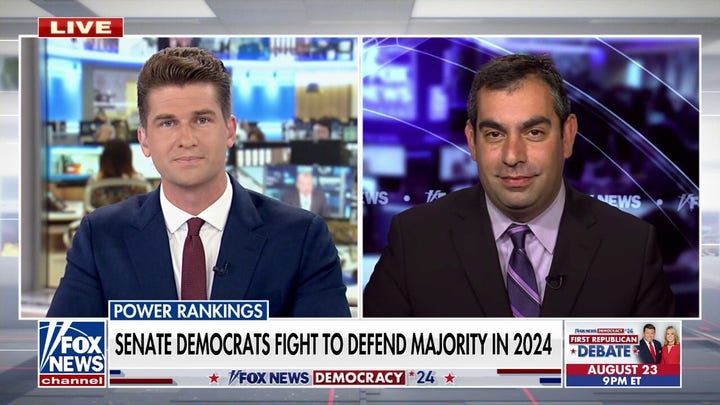It was a political showdown that symbolizes North Carolina’s role as one of the premiere purple states.
The Republican super majorities in the state’s legislature earlier this month voted to override vetoes from two-term Democratic Gov. Roy Cooper on a bunch of bills — including a trio of high-profile transgender youth measures. The bills — which are now law — ban gender-affirming care for minors, limit how gender identity can be taught in schools, and ban transgender athletes from competing in girls’ sports.
Democrats dominated federal elections in North Carolina from the late nineteenth century through the 1964 election. But Republicans capitalized on white conservative concerns over crucial civil rights legislation that was passed during the mid-1960s and have mostly prevailed in federal elections straight up to today.
Since former President Jimmy Carter’s victory in the state in 1976, former President Barack Obama’s 2008 win was the only other time a Democrat carried North Carolina in a presidential election. Recent presidential contests in the state have been close, with former President Donald Trump topping President Biden by less than a 1.5% in the 2020 White House race. Republicans have also won six of the last seven Senate showdowns in the Tar Heel State.
IS IT BACK TO BLUE FOR THIS GREAT LAKES BATTLEGROUND THAT SHIFTED FROM RED TO PURPLE?

A photo of lit buildings forming the skyline of Charlotte, North Carolina. (Andrea Evangelo-Giamou / EyeEm via Getty Images)
But in gubernatorial contests it’s a far different story, with Democrats winning every single election since 1992 – save one. And Democrats have also thrived in elections for other statewide executive offices.
“This ruby red state that we’re always told that North Carolina is hasn’t elected a Republican attorney general since 1896, longtime Republican strategist and communicator Doug Heye, a North Carolina native, told Fox News.
HOW THIS CRUCIAL MIDWESTERN BATTLEGROUND SHIFTED FROM PURPLE TO RED
Michael Bitzer, chair of political science and professor of politics and history at Catawba College, emphasized that the disparity between federal and state elections “is a classic historical dynamic of North Carolina politics.”
“We are deeply polarized and divided,” Bitzer told Fox News. “Both political parties can garner 46-47% of the vote without really breaking a sweat. It is that last 3-4% that can tip the election one way or the other.”

Looking ahead to next year, the state’s 16 presidential electoral votes — up one thanks to the latest census results — are expected to once again be fiercely contested. And as Heye noted, the open gubernatorial election in the race to succeed the term-limited Cooper – “is going to be a flashpoint in the country.”
WHAT’S BEHIND GEORGIA’S TRANSFORMATION FROM RELIABLY RED STATE TO TOP BATTLEGROUND?
“The presidential and gubernatorial races will feed off each other, in the financial sense but also in how negative they become,” Heye, a campaign veteran of a handful of high-profile Tar Heel State elections, emphasized.
And adding to the confusion heading into next year is the ongoing battle over North Carolina’s congressional district lines.
CLICK HERE TO GET THE FOX NEWS APP
“We don’t know what the congressional lines are going to be and that’s a big wildcard right now for the state,” Heye noted. “Will Republicans be able to dominate the congressional delegation like they have been. We’ll see.”
